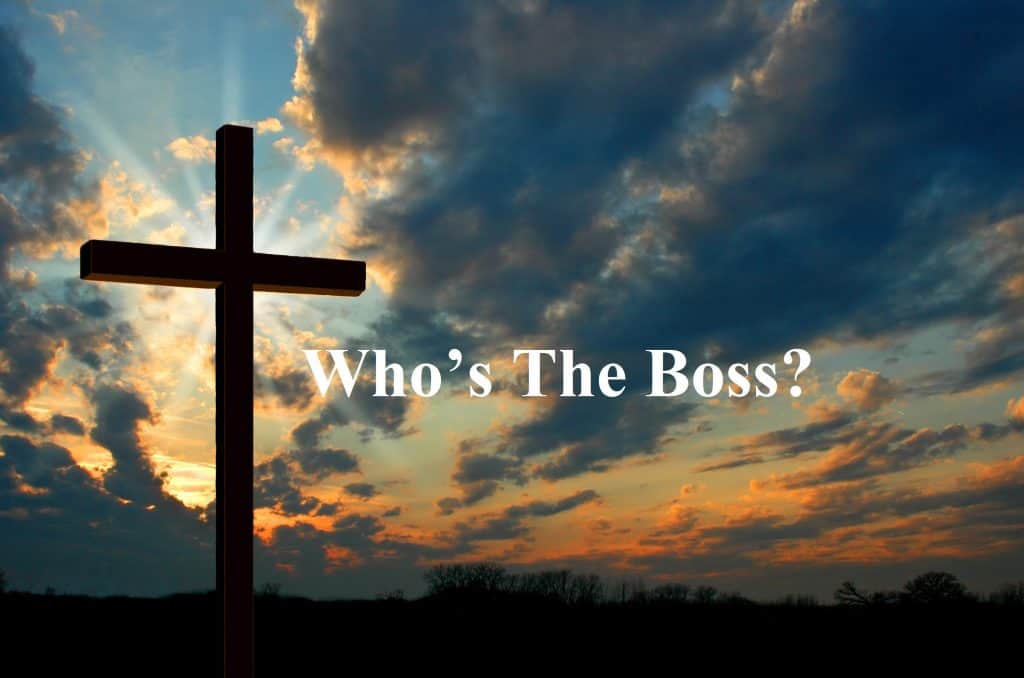⏱️ Estimated Reading Time: 7 min read
As I sat in the coffee house working away on my sermon for the upcoming weekend – as stereotypical as that may seem, it’s not the norm for me – I started getting hungry. I had been staring out of a glass door at a McAlister’s Deli all day. I finally decided it was lunch time.
I left my table, with all my stuff still on it, and walked across the street. I ordered my food, got it, and returned back to the coffee shop. I decided to eat my lunch real fast – which is usually the only speed I eat at anyway – on the coffee house patio area. I sat down and took my first big bite from a chicken-salad sandwich on a warm croissant. It was fantastic. As I savored the flavor and settled in for some good eating, one of the coffee house workers walked up to me. He said, “Sir, you can’t eat that food here. See the sign on the door.” I looked behind me at the same door I had exited a moment prior and saw a statement at the bottom of the door that read: NO OUTSIDE FOOD OR DRINK. I apologized – because I honestly didn’t know I was breaking rules – and quickly gathered my food up and went back across the street to eat. I still ate quickly.
I thought about the experience once I returned back to my table at the coffee house. I wasn’t mad about it. But something was nagging at me. The rule itself was understandable, so it wasn’t that. The guy was very polite, so he wasn’t what was nagging at me. I didn’t feel embarrassed by it, so it wasn’t a hit on my pride. Why did I need to sit down and think about and why am I now writing an article telling the story?
The coffee house was a “cool” spot. The kids these days wouldn’t have called it a “cool” place, they would have called it “lit” or “on fleek” or some other term I don’t know how to properly use. It is across the street from a liberal university. Everyone who walked into the coffee house is making a statement with what they wear. Their Macs all have stickers on them of the band, city, or philosophy of life they want to be associated with.
The reason I was so intrigued by the guy enforcing the food and drink rule with me, is he didn’t look like much of a rule follower. He was dressed in all black – not because it was his work uniform – and his hair was long and disheveled, pouring out from underneath a dirty trucker hat. Whether he cared about the rule or not, he enforced it, he followed it, just as his boss (the coffee house) wanted him to.
This guy is also likely someone who would disagree with a lot of tenants and principles from my Christian worldview. He probably thinks my views of God, man, the world, and moral standards are outdated, arcane, arbitrary, and unnecessary to follow. He would likely not submit to my views on sexuality or his need for salvation through Jesus alone.
Before you think I draw these conclusions purely based on the location of the coffee shop or his appearance, I went and talked to him. I ordered another coffee, and as I paid, I asked him if he was from the area. He was. I then asked him if there were any good churches in this area. The only answer he could give me was he thinks there might be a cool church downtown (he had heard) that had, in his words, “some cool, ancient, like Egyptian hieroglyphics, and stuff.”
I feel confident in my assessment.
Grant me the premise that he likely would not feel any constraint or tug to submit to or follow the teachings of the Bible or Christian worldview. Despite not having Christian convictions or authority, this is not a fella completely against submitting to his boss or following the authority of those over him. So why do I follow – the best I can and know how – the Bible’s teachings and he doesn’t? Why do I submit to the teachings of the Christian worldview and he does not, nor sees any need to? I see Jesus as boss (Lord/Master) and he does not. That’s it. This guy, at least in this setting, understands his boss has the authority to set behavior and practices, and he follows. He submits.
While you may be thinking this sounds incredibly simplistic, I believe it is profoundly helpful. It may have a “duh” kind of ring to it, but it is very revealing. We live in a world in a tug-of-war over ideas. Everyone is trying to assert their morality or worldview as the standard for all to follow. As Christians, we are watching America becoming increasingly more secularized and non-Christian. Our beliefs and views are increasingly marginalized and shunned. It should not surprise us. We submit to the authority of our boss. That is what it means to be a Christian. We submit to the authority of Jesus.
This leads me to several conclusions I want to close with:
- Everyone has an authority (boss) they submit to. Whether it is their peer group, media, professors, or themselves, everyone chooses their actions and beliefs from some authority. An important part of trying to minister to people who are not Christians is to discover what that authority is.
- To change people’s behaviors you must first change their authority. Rather than simply debating behaviors or beliefs, we need to get to the bottom. This authority is the root and foundation from which everything else stems. We need to question why they trust and rely upon that authority. Most non-believers are completely unprepared to answer questions about why they believe what they believe. They have grown used to skirting around answering for their views by throwing out one-liner objections to Christianity.
- Focus on Jesus. At the end of the day, because Jesus is our boss, we submit to His authority and what He says. You could completely show someone the error of their authority, but if you don’t get them to Jesus, then they will simply exchange one bad authority for another. We need to be well-versed on why Jesus is worth following and giving our lives to.
There was no drama or fireworks in anything that happened at the coffee house. A very nice – strangely dressed – guy said I wasn’t allowed to bring outside food or drink to the business. I obliged and life moved on. But it was a very good reminder in the everydayness of life, that everyone, regardless of what they claim their religious beliefs to be, submits to and obeys an authority in their lives. Everyone has a boss. At the end of the day, the basic premise of evangelism and missions is to share with as many people as we can that Jesus, and nobody else, is the world’s one true Boss. He is Lord. He is Master. That is why we as Christians doggedly, and unashamedly, obey and submit to his commands. If we can bring people to Jesus, they will too.




